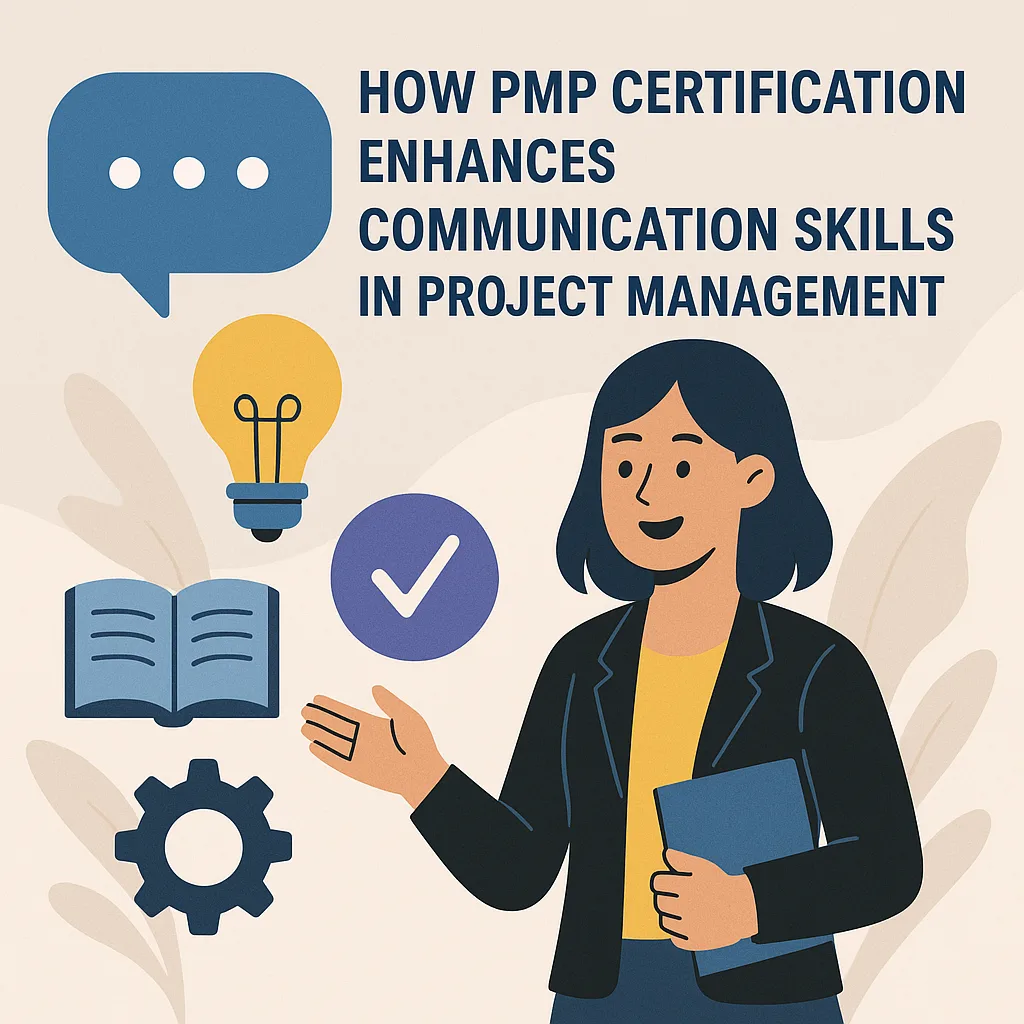Introduction to PMP Certification
The Project Management Professional (PMP) certification stands as a hallmark of excellence and a testament to a project manager’s expertise. This globally recognized credential, offered by the Project Management Institute (PMI), signifies that an individual possesses the knowledge, skills, and experience necessary to lead and direct projects effectively.
Definition and Importance of PMP Certification
PMP certification is designed to validate a project manager’s ability to manage projects and lead teams. It encompasses a comprehensive understanding of project management principles, methodologies, and best practices. The certification is not merely a credential; it represents a commitment to the profession and a dedication to continuous improvement. For project managers and team leaders, obtaining a PMP certification can significantly enhance their credibility and marketability in a competitive job landscape. It demonstrates a standardized level of knowledge and a commitment to the profession, which can lead to increased job opportunities and higher earning potential.
Overview of the Project Management Institute (PMI)
The Project Management Institute (PMI) is a leading global association for project management professionals. Established in 1969, PMI plays a crucial role in setting the standards for project management practices and providing resources for project managers worldwide. The institute is responsible for developing the PMP certification and maintaining its rigorous standards. PMI’s framework not only guides project managers in their professional development but also fosters a community of practitioners who share knowledge and best practices. By adhering to PMI’s standards, project managers can ensure they are equipped with the latest tools and techniques to manage projects effectively.
Benefits of PMP Certification Beyond Communication Skills
While the enhancement of communication skills is a significant benefit of PMP certification, it is not the only advantage. The certification also provides project managers with:
- Improved Project Performance: PMP-certified professionals are trained to apply best practices and methodologies that lead to more successful project outcomes.
- Enhanced Leadership Abilities: The training emphasizes leadership skills, enabling project managers to inspire and motivate their teams effectively.
- Networking Opportunities: Being part of the PMI community allows certified professionals to connect with other project managers, share experiences, and learn from one another.
- Increased Confidence: The knowledge gained through PMP training empowers project managers to make informed decisions and tackle challenges with confidence.
The Importance of Communication in Project Management
Effective communication is a cornerstone of successful project management, influencing every aspect of a project from initiation to closure. Here are some key points that highlight the significance of communication in this field:
- Role of Communication in Project Success: Communication serves as the lifeblood of project management. It facilitates the sharing of information, expectations, and feedback among team members and stakeholders. Clear communication helps ensure that everyone is aligned with project goals, timelines, and deliverables, which is essential for achieving project success. When team members understand their roles and responsibilities, they can work more efficiently and collaboratively, leading to better outcomes.
- Impact of Poor Communication on Project Failures: Ineffective communication can have dire consequences for projects. Misunderstandings, lack of clarity, and insufficient information can lead to mistakes, delays, and ultimately project failure. For instance, if team members are not aware of changes in project scope or deadlines, it can result in misaligned efforts and wasted resources. Studies have shown that poor communication is one of the leading causes of project failure, underscoring the need for robust communication strategies.
- Communication as a Key Competency in Project Management: The Project Management Professional (PMP) certification emphasizes the importance of communication as a critical competency for project managers. PMP training equips professionals with various communication frameworks and techniques that enhance their ability to convey information effectively. This includes understanding the different communication styles, utilizing appropriate tools for communication, and fostering an environment where open dialogue is encouraged. By mastering these skills, project managers can lead their teams more effectively, navigate conflicts, and ensure that all stakeholders are informed and engaged throughout the project lifecycle.
Communication Frameworks Taught in PMP Training
Effective communication is a cornerstone of successful project management, and the Project Management Professional (PMP) certification equips project managers and team leaders with essential communication frameworks and techniques. This section explores the key communication processes outlined in the PMBOK Guide, the various communication methods, and the significance of stakeholder communication management.
Overview of Key Communication Processes in the PMBOK Guide
The PMBOK (Project Management Body of Knowledge) Guide identifies several critical communication processes that are vital for project success:
- Communication Planning: This process involves determining the information and communication needs of project stakeholders. It sets the foundation for how information will be disseminated throughout the project lifecycle.
- Information Distribution: This process focuses on ensuring that the right information reaches the right stakeholders at the right time. It emphasizes the importance of timely and accurate information sharing to facilitate decision-making.
- Performance Reporting: This involves collecting and distributing performance information, including status reports, progress measurements, and forecasts. It helps stakeholders understand project performance and make informed decisions.
- Managing Stakeholder Engagement: This process ensures that stakeholders are appropriately engaged and informed throughout the project. It involves understanding stakeholder expectations and addressing their concerns effectively.
These processes are designed to enhance clarity, reduce misunderstandings, and foster collaboration among project teams and stakeholders.
Different Communication Methods and Their Applications
PMP training covers various communication methods, each with its unique applications:
- Verbal Communication: This includes face-to-face meetings, phone calls, and video conferences. Verbal communication is essential for discussions that require immediate feedback and clarification. It is particularly effective in building relationships and resolving conflicts.
- Written Communication: This encompasses emails, reports, and documentation. Written communication is crucial for providing a permanent record of information and decisions. It is often used for formal communication, such as project charters and status reports.
- Non-Verbal Communication: This includes body language, facial expressions, and tone of voice. Non-verbal cues can significantly impact how messages are received and interpreted. Understanding non-verbal communication helps project managers gauge stakeholder reactions and adjust their communication strategies accordingly.
Each method has its strengths and weaknesses, and PMP training emphasizes the importance of selecting the appropriate method based on the context and audience.
Importance of Stakeholder Communication Management
Stakeholder communication management is a critical aspect of project management taught in PMP training. It involves identifying stakeholders, understanding their needs and expectations, and developing strategies to engage them effectively. Key components include:
- Stakeholder Analysis: This process helps project managers identify all stakeholders and assess their influence and interest in the project. Understanding stakeholder dynamics is essential for tailoring communication strategies.
- Engagement Strategies: PMP training teaches various techniques for engaging stakeholders, such as regular updates, feedback sessions, and involvement in decision-making processes. Effective engagement fosters trust and collaboration, which are vital for project success.
- Conflict Resolution: The training also covers strategies for managing conflicts that may arise among stakeholders. By employing effective communication techniques, project managers can address issues proactively and maintain positive relationships.
Enhancing Communication Skills through PMP Certification
The Project Management Professional (PMP) certification is not just a credential that signifies expertise in project management; it also plays a crucial role in enhancing communication skills essential for effective project execution. The PMP training process equips project managers and team leaders with a variety of communication frameworks and techniques that are vital in navigating the complexities of project environments. Here are some key points on how PMP certification enhances communication skills:
Skills Acquired During PMP Training
- Active Listening: One of the core skills developed during PMP training is active listening. This involves fully concentrating, understanding, responding, and remembering what is being said. Active listening fosters better relationships among team members and stakeholders, ensuring that everyone feels heard and valued.
- Negotiation: PMP training emphasizes negotiation techniques that are critical in project management. Project managers often need to negotiate resources, timelines, and stakeholder expectations. The ability to negotiate effectively can lead to more favorable outcomes and smoother project execution.
- Conflict Resolution: Conflicts are inevitable in any project setting. PMP certification training provides strategies for conflict resolution, enabling project managers to address disputes constructively. This skill helps maintain team cohesion and keeps projects on track.
- Clear Communication: The training also focuses on the importance of clear and concise communication. Project managers learn how to articulate project goals, updates, and changes effectively, which is essential for keeping all stakeholders informed and engaged.
Real-World Applications of Communication Skills
The skills acquired through PMP certification have direct applications in real-world project scenarios:
- Stakeholder Engagement: Effective communication skills enable project managers to engage stakeholders more effectively, ensuring their needs and concerns are addressed. This leads to higher stakeholder satisfaction and project buy-in.
- Team Collaboration: With enhanced communication skills, project managers can foster a collaborative team environment. This is crucial for brainstorming sessions, problem-solving discussions, and overall team dynamics, which can significantly impact project success.
- Risk Management: Clear communication is vital in risk management. Project managers must communicate potential risks and mitigation strategies to their teams and stakeholders. The ability to convey this information effectively can prevent misunderstandings and ensure that everyone is prepared for potential challenges.
Role of Simulations and Case Studies in the PMP Curriculum
The PMP curriculum incorporates simulations and case studies that provide practical experience in applying communication skills:
- Simulations: These interactive exercises allow participants to practice communication techniques in a controlled environment. Simulations can mimic real-life project scenarios, enabling project managers to refine their skills in negotiation, conflict resolution, and stakeholder communication.
- Case Studies: Analyzing real-world case studies helps participants understand the impact of effective communication on project outcomes. By examining both successful and unsuccessful projects, learners can identify best practices and common pitfalls related to communication.
Conclusion: The Lasting Impact of PMP Certification on Communication Skills
Effective communication is not just a skill; it is the backbone of successful project execution. Throughout this discussion, we have explored various communication frameworks taught in PMP (Project Management Professional) training, highlighting their significance in fostering collaboration, clarity, and efficiency within project teams. Here are the key points that underscore the value of PMP certification in enhancing communication skills:
- Structured Communication Frameworks: PMP training introduces project managers to structured communication models, such as the Sender-Message-Receiver framework, which helps in understanding how to convey messages clearly and effectively. This structure aids in minimizing misunderstandings and ensures that all team members are aligned with project goals and expectations.
- Stakeholder Engagement: One of the critical aspects of project management is engaging stakeholders effectively. PMP certification equips professionals with strategies to identify stakeholders, understand their communication needs, and tailor messages accordingly. This targeted approach enhances stakeholder satisfaction and project buy-in.
- Conflict Resolution: Communication frameworks taught in PMP training also emphasize conflict resolution techniques. By learning how to navigate difficult conversations and address conflicts constructively, project managers can maintain a positive team dynamic and keep projects on track.
- Cultural Sensitivity: In today’s globalized work environment, understanding cultural differences in communication is essential. PMP certification provides insights into how cultural factors influence communication styles, enabling project managers to adapt their approaches and foster inclusivity within diverse teams.
Given these benefits, it is clear that obtaining a PMP certification can significantly enhance a project manager’s communication skills, ultimately leading to more successful project outcomes. As project managers and team leaders, it is crucial to recognize the importance of effective communication in your roles.
We encourage you to consider pursuing PMP certification if you have not already done so. This investment in your professional development can yield substantial returns in your ability to lead teams and manage projects effectively.
Finally, we invite you to reflect on your current communication practices. Are there areas where you can improve? Consider seeking further training or resources to enhance your skills. By doing so, you not only elevate your own capabilities but also contribute to the overall success of your projects and teams.
Find out more about Shaun Stoltz https://www.shaunstoltz.com/about/.
This post was written by an AI and reviewed/edited by a human.



